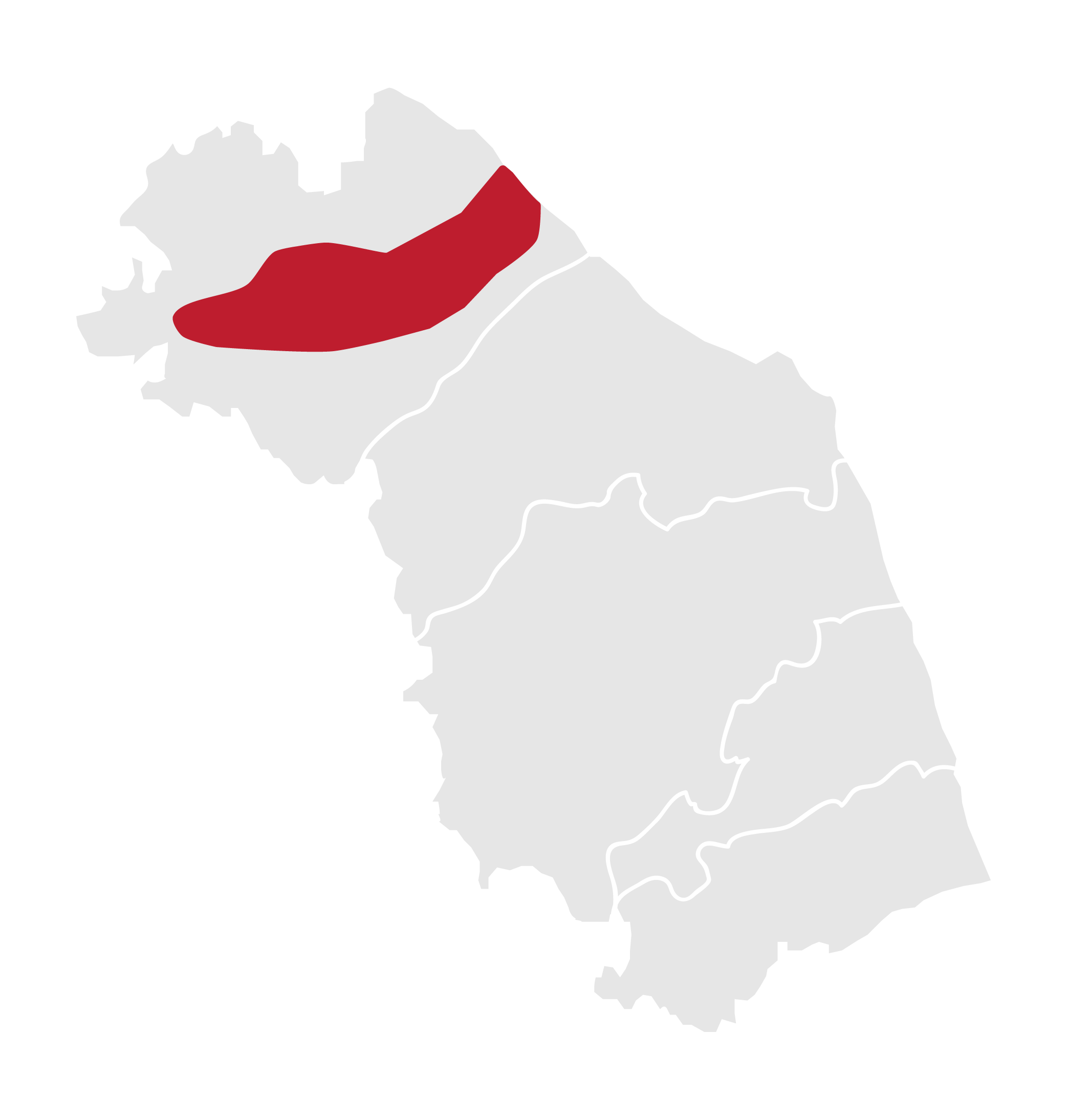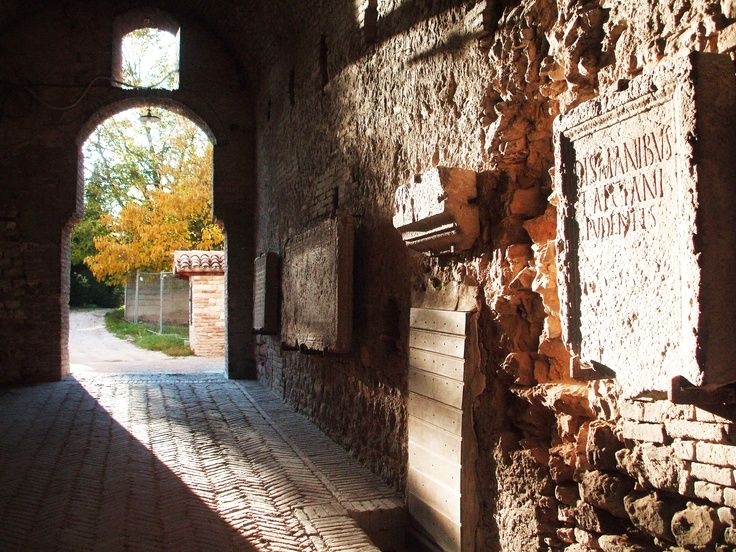
The A. Vernarecci Civic Museum is set in a wing of the Ducal Palace of Fossombrone, known as Corte Alta, high court, located halfway up the hill of Sant'Aldebrando, built in 1464 by Federico da Montefeltro just below the Citadel dominated by the Malatesta fortress Established in 1901 by Monsignor Augusto Vernarecci, the Civic Museum is characterized by a large archaeological collection which was renovated in 1997 with an exhibition project curated by Prof. Giancarlo Gori. Outside, in the two entrance halls and in the courtyard, epigraphs and architectural elements of the Roman Age are collected, mostly column staves and capitals. At the entrance of the museum is the bronze statue of Gaio Edio Vero, dating back to the 2nd century AD, patronus of Forum Sempronii and thus paid homage by the duoviri and the decurions of the city with this gift. Inside the museum are exhibited local materials that tell of the evolution of the population in the middle valley of Metauro from prehistory to Roman times. Among these are the section of bronze and terracotta statuettes from the votive deposits of the Tarugo, dated to be from the period between the 6th and 4th centuries BC, and fragments of Attic ceramic pottery from the villages of Monte Aguzzo and Monte Raggio, evidence of the existence of commercial relations with Greece. Of great importance is the collection of the Roman Age, divided into three sections: the first is related to the town of Forum Sempronii and its territory, wherein are exposed important sculptural remains dating from the 1st century AD to the 4th century AD which were found in the present-day archaeological site of Forum Sempronii. The second is dedicated to the aspects and testimonies of everyday life. The third is dedicated to funerary tombs and rituals; here are exhibited the burial kits found in the tombs of the Calmazzo funeral compound. At the end of the trail is the section dedicated to the life of Forum Sempronii in late Antiquity and the Early Middle Ages.
We have found no place to eat in the vicinity
We have found no place to sleep in the vicinity
Vino e olio, eccellenze dell’agricoltura e della gastronomia marchigiana, sono da sempre al centro dell’economia e dell’identità culturale locale, come testimoniano i numerosi impianti per la produzione olearia e vinicola presenti sin dall’età picena nella regione. Il viaggio alla scoperta del territorio dedicato all’antica produzione dell’olio e del vino ci conduce lungo la Salaria Gallica, strada che collegava Fossombrone ad Ascoli Piceno passando per le principali colonie romane, immerse nelle verdi colline marchigiane.

|
Address | Via del Verziere Fossombrone |

|
Phone Number | 0721714645 Per prenotazioni: 0721723263-3408245162 |

|
Opening Time | Apertura a chiamata tutti i giorni: 10:00-13:00 e 15:00-18:00 Chiuso: lunedì pomeriggio e domenica mattina Su prenotazione per gruppi |

|
Visit Time | 1 h and 30 min |

|
Entrance Fee | Biglietto cumulativo Museo Archeologico e Pinacoteca Civica: Intero 5€ Ridotto (per gruppi di almeno 15 persone) 3€ Ridotto (per scolaresche) 1€ per ogni struttura Gratuito per ragazzi fino a 14 anni, guide turistiche autorizzate, insegnanti che accompagnano classi e disabili. |

|
Reservation Required | no |

|
Viabilities | Flaminia - Salaria Gallica |

|
Bookshop | yes |

|
Free Guided Tour | no |

|
Guided Tour | visite guidate, per un minimo di 15 persone, in lingua italiana e inglese, su prenotazione 0721723263 / 3408245162 (Ufficio IAT comunale) . Prezzi secondo la normativa vigente delle guide turistiche. |

|
Parking | yes |

|
Disabled Accessibility | yes |

|
Audioguide | no |

|
Didactic Rooms | sì (con 35 posti disponibili) |

|
Conference room | sì (con 35 posti disponibili) |

|
English language | no |

|
Public Transport | no |

|
Family Services | no |
